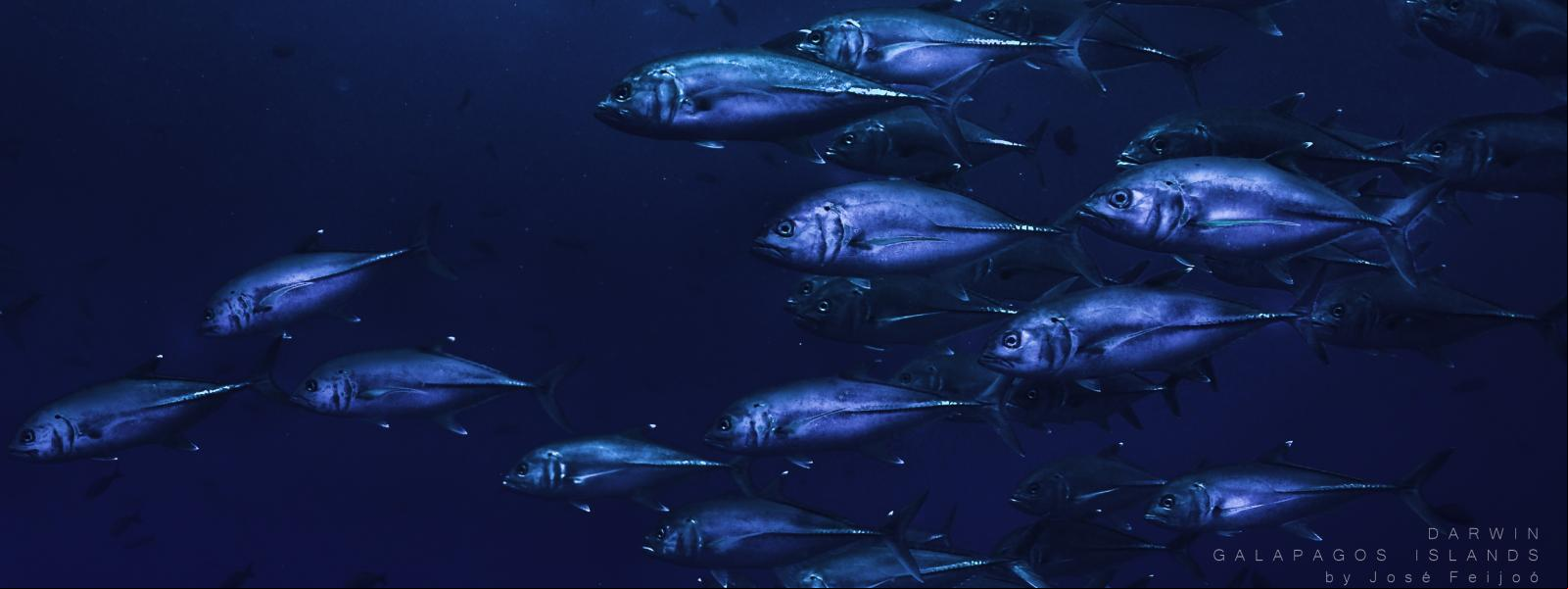
Publications

New Hope for Environmental Justice in IFI Projects
In its budget bill for 2014, the US Congress has taken bold steps to promote environmental justice within international financial institutions. Among other measures, the bill instructs the US representatives in these institutions to oppose large dams and logging projects that affect primary tropical forests, and to seek justice for the victims of human rights violations in IFI projects such as the Chixoy Dam in Guatemala. With input from other groups, International Rivers and AIDA published a factsheet which summarizes the provisions of the budget bill and the opportunities it creates for NGOs. The factsheet is addressed at partner groups monitoring and campaigning against IFI projects.
Read more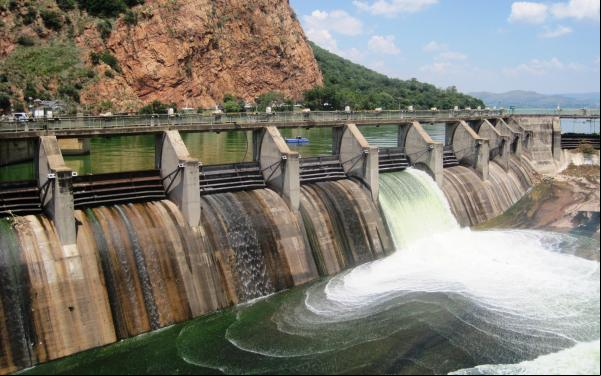
The link between international environmental law, human rights and large dams
The article is an update and reissue of two chapters of the report Large Dams in the Americas: Is the Cure Worse than the Disease, written by Jacob Kopas and Astrid Puentes Riaño. The article identifies “the main obligations, standards, decisions and international law applicable to large hydropower plants that our governments should use in the planning, implementation, operation and closure of these projects." The article is divided into two parts. Chapter I offers an overview of the main standards, the legal framework of international human rights and environmental law as well as the decisions and international jurisprudence applicable to the cases of large dams. In Chapter II, this framework is applied to the cases of human rights abuses caused by the degradation of the environment through the development of a large dam.
Read more
Short-lived climate pollutants: An opportunity to reduce emissions
AIDA together with CEDHA, CEMDA and RedRacc have produced a briefing paper on short-lived climate pollutants (SLs) for presentation at the 19th Conference of the Parties (COP19) on climate change, which is running November 11 to 22 in Warsaw, Poland. SLs are agents that contribute to global warming and have a relatively short lifetime in the atmosphere, from a few days to a few decades. That’s different from CO2, which remains in the atmosphere for centuries or millennia after emission. CO2 contributes an estimated 55% to 60% to global warming, while the remaining 40-45% comes from the emission of SLs. The latter seriously affect human health and ecosystems, meaning that any reduction in their emissions also brings significant social benefits. The fact that these contaminants remain so little time in the atmosphere means that their mitigation brings short-term benefits, in particular to the most vulnerable regions of the world already suffering the impacts of climate change. We must seize the opportunity to reduce SLs in the fight against the effects of this global challenge. Our paper explains what SLs are, which are the most relevant ones, and what are the reasons we should work to regulate and reduce their emissions. The paper also provides recommendations for taking on the challenge. Read the Fact Sheet (in Spanish)
Read more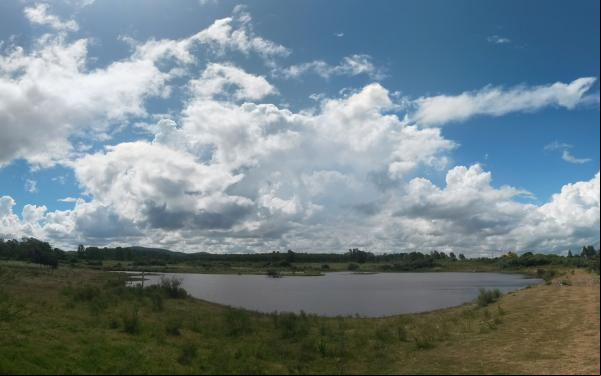
Letter to the President of the World Bank Group
DR. JIM YONG KIM PRESIDENT THE WORLD BANK GROUP Dear Dr. Kim: We are writing to express our deepest concern regarding the World Bank Group decision to start financing and promoting large hydroelectric projects as “sustainable energy.” We urge you to review the information about negative impacts that large dams have had on the environment and human rights in the Americas, and to reconsider that decision. Large dams commonly cause severe harm to the environment. Underwater decomposition of trees and plants releases major quantities of methane, contributing to climate change. Large dams degrade water quality and sanitation both upstream and downstream from the artificial modification of river systems. Degradation of aquatic ecosystems leads to loss of biodiversity. Seismic instability is another common consequence of dam construction. These environmental harms often violate human rights protected by international legal instruments. These projects repeatedly generate health risks, block access to traditional food sources, and interfere with the ability to earn a livelihood. They displace entire communities, interfering with the human rights to freedom of movement, property, housing, and just compensation. State sponsors of large dams routinely fail to produce comprehensive environmental and social impact assessments, which are required by international law. Access to the information that should be provided by such an assessment is essential to ensuring the human rights to informed consent and prior consultation. Specific international laws and standards that apply to indigenous, afro-descendant and tribal peoples are routinely ignored. In some cases, public protest to ill-considered dam projects is criminalized, contrary to international human rights law. Many organizations and institutions, including the World Commission on Dams, have identified these negative consequences. AIDA has also produced a report analyzing the effects of large dams on the environment and human rights, “Large Dams in the Americas.” The executive summary of the report (in English) and the full version (in Spanish) are attached to this letter. AIDA stands with the World Bank Group in ing development in Latin America. But that development should be sustainable. It should not come at the expense of the environment and human rights. Promotion of truly renewable resources, including wind, solar, and geothermal energy, can also encourage development that sustains growing economies, thriving environments, and respect for human rights. We insist that the World Bank Group finance only projects that abide by international law and standards, and give due and full consideration to alternative energy sources and efficiency measures. We would be more than happy to help the World Bank Group to drive true, sustainable development and to promote projects that increase human well-being while also protecting the environment and human rights. We hope you find this information useful and incorporate it into World Bank policy.
Read more
Letter to the Board of the Green Climate Fund
Organizations, movements and civil society groups from developing countries -with decades of experience working for the rights and aspirations of peoples and communities- express their unified call for the adoption of the most robust environmental and social protections at the Green Climate Fund.
Read more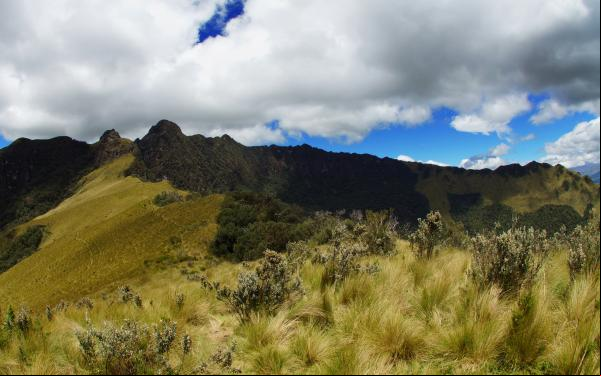
Declaration of Civil Society Organizations that Participated in the First Regional Forum on Business and Human Rights in Latin America and the Caribbean
The organizations g the declaration regret that " the Forum was far from a plural confluence of diverse actors. In the seven s that made up the two days of the event, 47 people participated, of which only 10% came from communities affected by business activities or human rights NGOs that work with such communities." Therefore, organizations "respectfully but emphatically call on the Working Group, the Human Rights Council, and the international community to correct the aforementioned problems and guarantee the adequate participation of civil society and groups of affected peoples, both in form as well as content, in the Second Global Forum on Business and Human Rights, which will take place in Geneva on December 2-4, 2013".
Read more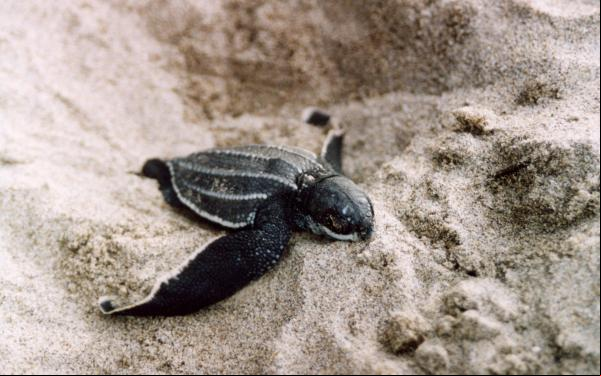
Organizations call for probe into the murder of Jairo Mora in Costa Rica (Spanish only)
In a letter to Costa Rican General Attorney Jorge Chavarría and René Castro, the minister of environment and energy, local and international organizations expressed deep concern for the murder of Jairo Mora, a young defender of the leatherback sea turtles. He was murdered on May 30, 2013 in Moín Beach, Limón province. The groups said the severity of the crime warrants an immediate and effective investigation to prevent impunity and the repetition of such acts. The following are essential: A serious, impartial, immediate and effective investigation must be carried out to put on trial and punish the individuals responsible for Jairo Mora's murder. Measures must be taken so that the authorities responsible for controlling and monitoring the environment can effectively guarantee the rights of environmentalists, offering adequate including through patrols to protect natural resources and by earmarking sufficient resources for these purposes. The state must publicly recognize the importance of the work of environmentalists as defenders of human rights, and it must take the necessary measures to stop the violence against them by taking an active position of respect and protection of their rights. In the last paragraph of the letter, the organizations write that “impunity in cases of serious aggression against advocates for defending the environment and natural resources is not only a violation of human rights but also presents a serious threat against environmental sustainability. Therefore, it is necessary for Costa Rica, as a nation committed to defending the environment, to take effective action to prevent such crimes like Jairo Mora's murder don’t go unpunished and don’t happen again.”
Read more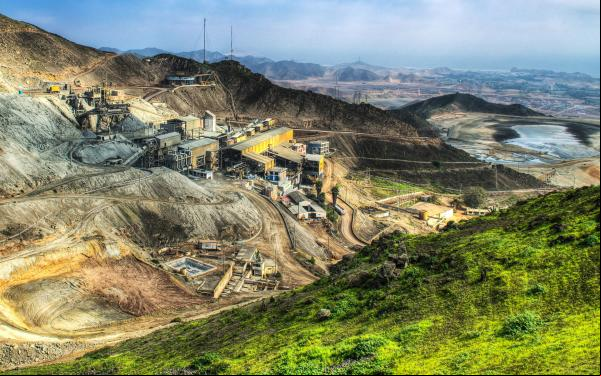
Collective Statement to the Colombian government on the collapse of Law 1382
The organizations and persons behind the Statement express our concerns to the Colombian government about the implications of the collapse of the Mining Code in effect since May 11, 2012 (Law 1382, 2010) and the consequent return to the previous Mining Code (Law 685 2001), particularly as concerns the serious consequences to the country’s environment (detailed in the document). To prevent these impacts, we urge you to take the following steps: Present in the shortest time possible a draft of the Mining Code that overcomes the deficiencies of mining regulations and brings the legislation into line with the duties of biodiversity and water protection, while previously guaranteeing that ethnic groups have the right to free, prior and informed consultation. Maintain the moratorium on mining permits until a new Mining Code is submitted and approved. Immediately decree a moratorium on environmental licenses in order to avoid the elimination of environmental protection clauses. Statement available in Spanish only.
Read more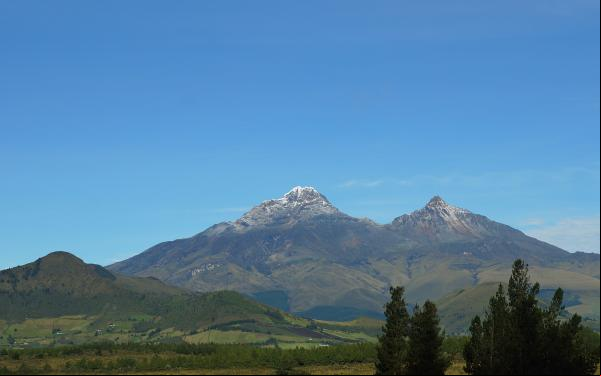
AIDA and CEMDA t report on the UPR of Mexico
In accordance with the guidelines of the Human Rights Council, the Mexican Environmental Law Center (CEMDA) and the Interamerican Association for Environmental Defense (AIDA) present comments on the extent of Mexico’s compliance with the recommendations the country accepted as part of the 2009 Universal Periodic Review (UPR). We also present comments on other human rights violations related to environmental issues, which we believe should be taken into consideration during the next Universal Periodic Review set to take place later this year.
Read more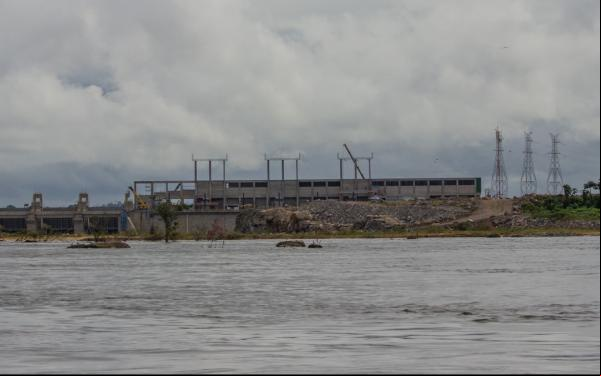
Open letter to the President of BNDES about funding for Belo Monte (Spanish only)
Excmo. Sr. Luciano Coutinho Presidente del Banco Nacional de Desarrollo Económico y Social – BNDES Río de Janeiro, Brasil Las organizaciones de la sociedad civil abajo firmantes, comprometidas con la defensa de los derechos humanos, el desarrollo con responsabilidad socioambiental y el fortalecimiento de la democracia, venimos respetuosamente a presentar las siguientes consideraciones y solicitar medidas urgentes ante el desembolso del préstamo anunciado por el BNDES para financiar el Complejo Hidroeléctrico de Belo Monte, en el Estado de Pará. Considerando que, de conformidad con la amplia documentación y estudios técnicos, existen fuertes evidencias de la inviabilidad económica del Complejo Belo Monte1, con base en factores como: i) el aumento constante de los costos del emprendimiento, que ya se multiplicó en casi 7 veces, de R$ 4.5 billones de reales en 2005 a R$ 19 billones en la época de la licitación en 2010, y actualmente está en aproximadamente R$ 28,9 billones conforme a datos del BNDES, pudiendo llegar a los R$ 32 billones, según analistas; ii) la reducida capacidad de generación de energía a lo largo de un año, aproximadamente apenas un 39% de su capacidad instalada de 11,2 mil MW; y iii) los verdaderos costos económicos asociados a la mitigación y compensación de impactos socioambientales que fueron crónicamente sub-dimensionados, en gran medida, a causa de presiones políticas por la aprobación de licencias ambientales, contrariando informes técnicos del propio IBAMA; Considerando que el BNDES firmó el 16 de junio de 2011 un primer préstamo puente por un valor de R$ 1,1 billones a favor del Consorcio Norte Energía S.A. (NESA), un segundo préstamo puente el 2 de julio de 2012 por un valor total de R$ 1,8 billones utilizando a la Caja Económica Federal (CEF) y al Banco ABC S.A. como prestamistas; y que el BNDES anunció el 26 de noviembre de 2012 la aprobación de un financiamiento por R$ 22,5 billones (el mayor préstamo de su historia) para Belo Monte, con la actuación del CEF y del BTG Pactual como bancos prestamistas de parte de los recursos,2 para sumar un total de R$ 25,4 billones; Considerando que los préstamos del BNDES a favor del consorcio Norte Energía están utilizando recursos públicos, oriundos del Programa de Integración Social y del Programa de Formación de Patrimonio del Funcionario Público (PIS-PASEP) y del Fondo de Garantía por Tiempo de Servicio (FGTS), asignados al Fondo de Amparo al Trabajador (FAT) y de la emisión de bonos del Tesoro Nacional en el mercado internacional (en los que la diferencia entre la tasa de interés pagada por Tesoro es aquella cobrada al BNDES y también cubierta por el contribuyente brasileño); Considerando que para la aprobación de los dos préstamos puente, por un valor total de R$ 2.9 billones, el BNDES exceptuó la realización de análisis de viabilidad económica y de clasificación de riesgo del Complejo Belo Monte, exigidos por la Resolución No. 2.682/99 de Consejo Monetario Nacional – CMN y no cumplió con las determinaciones de la Circular Nº 3547 de 07/07/2011/BACEN (D.O.U. 08/07/2011) en lo relativo a la necesidad de evaluación y cálculo de riesgo resultante de la exposición a los daños socioambientales del emprendimiento; Considerando que, a pesar de las determinaciones de las Resoluciones 2022/10 y 2025/10, aprobadas por la Dirección Ejecutiva, que instituyó la nueva Política de Responsabilidad Social y Ambiental y la nueva Política Socioambiental del Sistema BNDES, el Banco aún no cuenta con una guía socioambiental con directrices para orientar financiamientos para el sector hidroeléctrico, como herramienta para asegurar el cumplimiento de sus objetivos sociales, económicos y ambientales, en el marco de la legislación vigente; Considerando que el BNDES recibió notificaciones extra-judiciales firmadas por diversas organizaciones de la sociedad civil en octubre de 2010 y noviembre de 20113, con advertencias sobre los riesgos financieros, legales y de reputación a raíz de su involucramiento como financiador del Complejo Belo Monte; sin que eso haya provocado cambios efectivos en la postura del banco; Considerando el incumplimiento crónico de las condicionantes de las licencias ambientales (Licencia Previa No. 342/2010 y Licencia de Instalación No. 795/2011), como lo prueban las minutas del seguimiento de IBAMA y de la FUNAI, así como los relatos de organizaciones civiles y poblaciones afectadas, sin que eso haya afectado las decisiones del BNDES en cuanto al financiamiento de Belo Monte; Considerando las graves violaciones a los derechos humanos de los pueblos indígenas y de otras comunidades locales del Xingú y de la legislación ambiental, así como irregularidades en el cumplimiento de la legislación laboral por parte de NESA y empresas tercerizadas; Considerando los impactos socioambientales que la construcción de Belo Monte ya está provocando, como por ejemplo el desplazamiento forzado de agricultores familiares y ribereños sin compensación efectiva, afectación a la calidad del agua, mortalidad de peces y quelonios, aumento de la deforestación ilegal, invasión de tierras y explotación maderera ilegal, invasión de empresas mineras depredadoras (como la multinacional canadiense Belo Sun en la Volta Grande del Xingú), aumento de violencia y prostitución infantil, criminalización de defensores de derechos humanos en la región, así como la sobrecarga de los servicios de salud, saneamiento, educación y seguridad pública en áreas urbanas; sin medidas efectivas de solución a los problemas, en el ámbito de las condicionantes de licencias, el PDRS Xingú y las medidas cautelares solicitadas por la Comisión Interamericana de Derechos Humanos (CIDH); Considerando que el cuadro de ilegalidades de Belo Monte tiene como resultado, hasta el momento, la presentación de 15 acciones del Ministerio Público Federal, 21 acciones de la Defensoría Pública y 18 acciones de organizaciones de la sociedad civil; e internacionalmente la presentación de una petición y el otorgamiento de medidas cautelares por la Comisión Interamericana de Derechos Humanos en favor de las comunidades indígenas de la cuenca del Xingú; Considerando que el BNDES no posee hasta la fecha un sistema de monitoreo y evaluación del cumplimiento de condicionantes de licencias ambientales, de violaciones de derechos humanos y legislación ambiental y de otros impactos socioambientales de emprendimientos como Belo Monte, contradiciendo así el discurso de responsabilidad social y ambiental del banco; Considerando que un nuevo aporte de R$ 22,5 billones del BNDES, en el contexto actual de incumplimiento de obligaciones formales por parte de NESA, genera que el BNDES y otros órganos públicos intensifiquen enormemente los problemas de degradación ambiental y el sufrimiento de las poblaciones afectadas y amenazadas en la región afectada por Belo Monte; Solicitamos que no se realice ningún desembolso del préstamo de R$ 22,5 billones para Norte Energía S.A., anunciado el día 26 de noviembre de 2012 por el BNDES, antes de cumplir con las siguientes medidas urgentes, que constituyen, en su gran mayoría, obligaciones formales preexistentes del Banco: a) Demostración del pleno cumplimiento de las leyes nacionales e internacionales aplicables para hidroeléctricas y las directrices, criterios y demás compromisos del Protocolo de Intenciones para la Responsabilidad Socioambiental (Protocolo Verde) firmado por el BNDES en agosto de 2008; b) Esclarecimiento de los motivos para la inexistencia de una guía socioambiental con directrices para orientar inversiones en el sector hidroeléctrico, conforme a lo previsto en las Resoluciones 2022/10 y 2025/10 que instituyeran la nueva Política de Responsabilidad Social y Ambiental y la nueva Política Socioambiental del Sistema BNDES, así como una explicación sobre las medidas que el banco viene tomando y pretende implementar para que tales resoluciones sean cumplidas para el caso de Belo Monte; c) Criterios y métodos utilizados por el BNDES en el análisis de la viabilidad económica de Belo Monte - especialmente en lo que se refiere a los costos de construcción, producción y venta de energía, y costos de mitigación y compensación de impactos socioambientales – explicando los riesgos de perjuicios para las arcas públicas y el contribuyente brasileño y cómo el banco pretende sanearlos; d) Demostración de cumplimiento efectivo de la Resolución No. 2.682/99 del Consejo Monetario Nacional – CMN, relativa al análisis de viabilidad económica y de clasificación de riesgo del Complejo Belo Monte; e) Cumplimiento pleno de las determinaciones de la Circular Nº 3547 de 07/07/2011/BACEN (D.O.U. 08/07/2011) relativa a la necesidad de evaluación y cálculo de riesgo resultante de la exposición a los daños socioambientales del emprendimiento; f) Muestra de los análisis realizados por el BNDES respecto al grado de cumplimiento de condicionantes de licencias ambientales y sus implicaciones para la aprobación del préstamo principal; g) Esclarecimiento de los análisis realizados por el BNDES sobre el grado de cumplimiento de la legislación vigente en materia laboral y de derechos humanos, inclusive el derecho al consentimiento libre, previo e informado, conforme al artículo 231 de la Constitución Federal, el Convenio 169 de la OIT y la Declaración de los Derechos de los Pueblos Indígenas de las Naciones Unidas y las medidas cautelares otorgadas por la Comisión Interamericana de Derechos Humanos; h) Posicionamiento del BNDES sobre las más de 50 acciones interpuestas relativas a las ilegalidades en el licenciamiento e instalación del Complejo Belo Monte, y sus conclusiones en cuanto a las implicaciones del pasivo jurídico del emprendimiento para la aprobación del préstamo principal; i) Demostración de pleno cumplimiento del artículo 1, § 1º de la Ley 6.938/81, en lo que se refiere a la responsabilidad objetiva de los agentes financieros por los daños ambientales del emprendimiento, inclusive aquellos no previstos o asumidos en la Licencia Previa No. 342/2010. Señor Presidente, considerando la urgencia y relevancia de este asunto, inclusive para asegurar la coherencia entre los objetivos de responsabilidad social y ambiental del BNDES y sus operaciones en la práctica, solicitamos el máximo de atención y empeño en atender esta solicitud. En este sentido, solicitamos la realización de una reunión urgente de una delegación de las organizaciones signatarias de esta carta con Su Excelencia y su equipo, para tratar las cuestiones aquí planteadas y la implementación de las medidas urgentes propuestas. Altamira-PA, 4 de diciembre de 2012 See the full list of national and international organizations that signed the letter in the attached PDF version (spanish only).
Read more